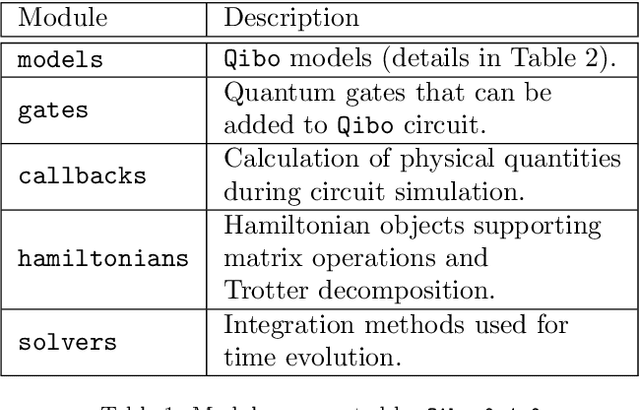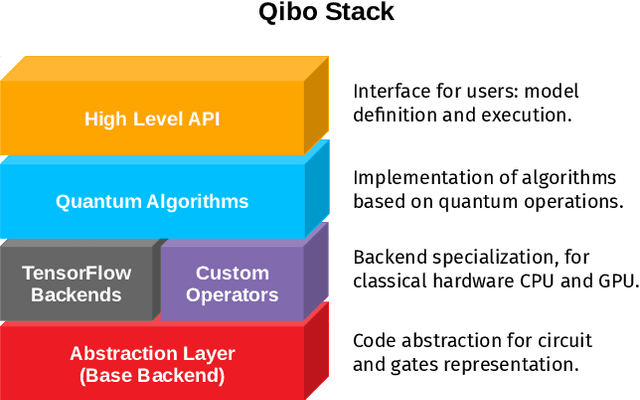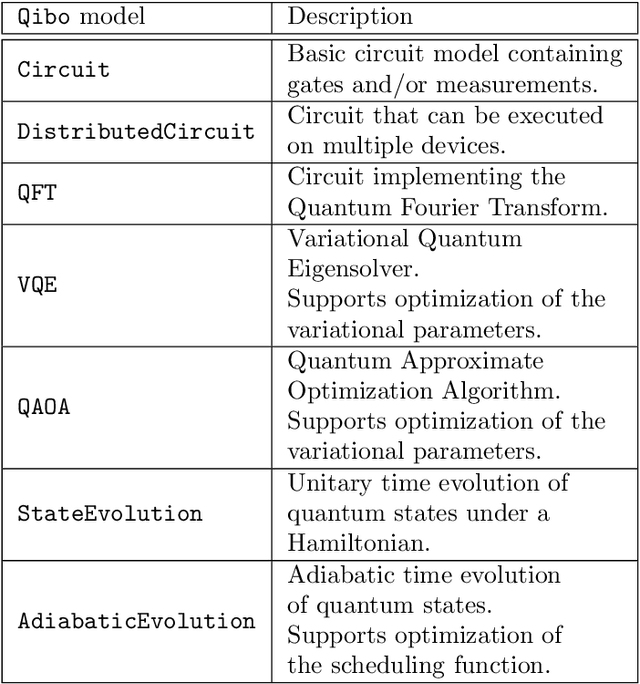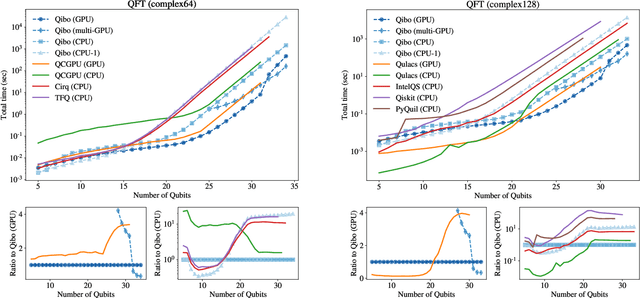Adrián Pérez-Salinas
Limits of quantum generative models with classical sampling hardness
Dec 31, 2025Abstract:Sampling tasks have been successful in establishing quantum advantages both in theory and experiments. This has fueled the use of quantum computers for generative modeling to create samples following the probability distribution underlying a given dataset. In particular, the potential to build generative models on classically hard distributions would immediately preclude classical simulability, due to theoretical separations. In this work, we study quantum generative models from the perspective of output distributions, showing that models that anticoncentrate are not trainable on average, including those exhibiting quantum advantage. In contrast, models outputting data from sparse distributions can be trained. We consider special cases to enhance trainability, and observe that this opens the path for classical algorithms for surrogate sampling. This observed trade-off is linked to verification of quantum processes. We conclude that quantum advantage can still be found in generative models, although its source must be distinct from anticoncentration.
The role of data-induced randomness in quantum machine learning classification tasks
Nov 28, 2024Abstract:Quantum machine learning (QML) has surged as a prominent area of research with the objective to go beyond the capabilities of classical machine learning models. A critical aspect of any learning task is the process of data embedding, which directly impacts model performance. Poorly designed data-embedding strategies can significantly impact the success of a learning task. Despite its importance, rigorous analyses of data-embedding effects are limited, leaving many cases without effective assessment methods. In this work, we introduce a metric for binary classification tasks, the class margin, by merging the concepts of average randomness and classification margin. This metric analytically connects data-induced randomness with classification accuracy for a given data-embedding map. We benchmark a range of data-embedding strategies through class margin, demonstrating that data-induced randomness imposes a limit on classification performance. We expect this work to provide a new approach to evaluate QML models by their data-embedding processes, addressing gaps left by existing analytical tools.
On the relation between trainability and dequantization of variational quantum learning models
Jun 11, 2024



Abstract:The quest for successful variational quantum machine learning (QML) relies on the design of suitable parametrized quantum circuits (PQCs), as analogues to neural networks in classical machine learning. Successful QML models must fulfill the properties of trainability and non-dequantization, among others. Recent works have highlighted an intricate interplay between trainability and dequantization of such models, which is still unresolved. In this work we contribute to this debate from the perspective of machine learning, proving a number of results identifying, among others when trainability and non-dequantization are not mutually exclusive. We begin by providing a number of new somewhat broader definitions of the relevant concepts, compared to what is found in other literature, which are operationally motivated, and consistent with prior art. With these precise definitions given and motivated, we then study the relation between trainability and dequantization of variational QML. Next, we also discuss the degrees of "variationalness" of QML models, where we distinguish between models like the hardware efficient ansatz and quantum kernel methods. Finally, we introduce recipes for building PQC-based QML models which are both trainable and nondequantizable, and corresponding to different degrees of variationalness. We do not address the practical utility for such models. Our work however does point toward a way forward for finding more general constructions, for which finding applications may become feasible.
Qibo: a framework for quantum simulation with hardware acceleration
Sep 03, 2020



Abstract:We present Qibo, a new open-source software for fast evaluation of quantum circuits and adiabatic evolution which takes full advantage of hardware accelerators. The growing interest in quantum computing and the recent developments of quantum hardware devices motivates the development of new advanced computational tools focused on performance and usage simplicity. In this work we introduce a new quantum simulation framework that enables developers to delegate all complicated aspects of hardware or platform implementation to the library so they can focus on the problem and quantum algorithms at hand. This software is designed from scratch with simulation performance, code simplicity and user friendly interface as target goals. It takes advantage of hardware acceleration such as multi-threading CPU, single GPU and multi-GPU devices.
 Add to Chrome
Add to Chrome Add to Firefox
Add to Firefox Add to Edge
Add to Edge